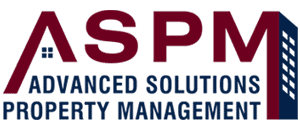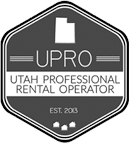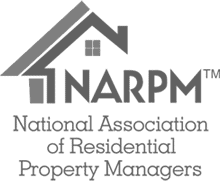When To Raise Rent: Market Analysis Guide For Salt Lake Property Owners
As a property owner in northern Utah, knowing when and how to raise rent is key to your investment’s profitability. Utah is landlord friendly but timing and market awareness are crucial for success. With proper planning you can raise rents that maximize returns while keeping tenants happy.

Legal Framework for Rent Increases
Utah has no rent control laws, so you have significant freedom to adjust your rental rates and terms. You have rent control, which means even your local government can’t establish their own rent control ordinances without express approval from the state legislature.
For month to month leases you need to give at least 15 days written notice before increasing. For fixed term leases you can’t increase the rent during the lease period unless it’s stated in the agreement, and all increases must be documented with written notice.
Strategic Timing and Amount
The most common time to increase the rent is in between lease periods or during renewals. This is a natural transition point and allows you to make sure the rates are aligned with the current market. When sending out renewal documents make sure to include the new rate and give tenants time to decide if they want to renew. Consider offering multi year leases with predetermined annual increases to provide stability for both parties.
Salt Lake City’s rental market peaks in the summer according to Zillow, so spring is the best time to increase. Winter increases may face more resistance due to lower seasonal demand. According to Apartments.com’s market report (published February 2025), the average rent in Salt Lake City is $1,450 per month, which is 11% lower than the national average of $1,624/month. Rents vary significantly by neighborhood with the most affordable being Rose Park, Glendale and Poplar Grove and the premium areas being Garfield, Capitol Hill and Sugar House.
Most successful landlords follow percentage guidelines for increases. Annual increases of 3-5% are in line with market inflation and are well received by tenants. 5-10% may be justified in rapidly appreciating neighborhoods and anything over 10% should be justified with market comparables. Property improvements or added amenities can support higher increases.
Conducting Effective Market Analysis
A Rental Market Analysis (RMA) is key to making smart decisions about rent increases. A full RMA goes beyond just online searching and considers multiple factors that impact your property’s rental value.
A full RMA looks at several key things: recent comparable properties within a tight radius of your rental, seasonal demand fluctuations in your neighborhood, days-on-market trends, vacancy rates, and rental absorption rates. It also evaluates property specific features that add or subtract value compared to similar rentals, such as updates, amenities, parking options and proximity to transportation and services.
Online rental listing sites can give you a general idea but they lack accuracy in specific neighborhoods and don’t account for the unique aspects of your property. Many listings show asking prices not actual signed lease amounts which can skew the true rental market.
At Advanced Solutions Property Management, our RMAs use our database of actual lease transactions to give you much more accuracy than public listings alone. We monitor over 300 rental properties in Salt Lake County so we have real time market data that the general public doesn’t.
An ASPM Rental Market Analysis includes a detailed comparison of similar properties, evaluation of your property’s specific features, competitive positioning recommendations and optimal pricing strategies based on your goals (minimizing vacancy vs. maximizing revenue). This comprehensive approach helps you make data driven decisions about rent increases and reduces the risk of extended vacancies or underpricing your investment.
Get a free rental market analysis from ASPM so your next rent increase is based on current market data specific to your property and neighborhood.
Legal Responsibilities and Fair Housing
The Utah Fair Housing Act prohibits discrimination in housing related activities. As a landlord you can’t use rent increases to discriminate against tenants based on protected characteristics including race, color, religion, sex, national origin, familial status, disability or source of income. Keep thorough records of all rent increases, notices and communications with tenants to ensure compliance and protect yourself legally.
Communication Strategies and Tenant Relationships
How you communicate increases matters to tenant retention. While Utah law only requires 15 days notice, 30-60 days is professional and gives tenants time to plan. Explain the justification professionally referencing market data or property improvements when applicable.
Consider phasing in larger increases over multiple renewal periods for long term tenants. The quality of your current tenants should factor into your decision making.
As Bob Mack, Principal Broker and Owner at Advanced Solutions Property Management says, “We’ve refined our screening process to protect our owners’ investments while treating applicants fairly and professionally. The extra time we spend on thorough screening saves our clients thousands in potential damages, lost rent and legal headaches.”
Our tenant screening in Salt Lake City ensures only qualified tenants who pay on time and respect your property. Remember the financial impact of losing a good tenant can include turnover costs, potential vacancy and the risk of placing problem tenants.
Non-Payment and Evictions
If tenants refuse to pay the increased rent after proper notice Utah law provides a specific eviction process. First serve a “3 day notice to pay or vacate” giving tenants 3 calendar days to pay the full amount or vacate. If they don’t comply you can file an eviction lawsuit with the court, including the summons and complaint, written rental agreement, eviction notice and itemized calculation of amounts owed.
If the court rules in your favor you’ll receive an Order of Restitution that must be served by a sheriff, constable or private investigator. Tenants have 3 days to vacate after being served. The entire process can take several weeks and professional legal assistance is often recommended. For more information visit the Utah State Courts eviction information page.
How ASPM Can Help
Are you unsure what to rent your Salt Lake County investment property for? Many owners leave money on the table with underpriced rentals or face costly vacancies with overpriced units. With over 65 years of combined property management experience we help property owners make these decisions with data and implementation.
For market analysis or rent increase assistance for your Salt Lake City property contact us today:
Advanced Solutions Property Management
1360 S Main St, Salt Lake City, UT 84115
(801) 820-0806








